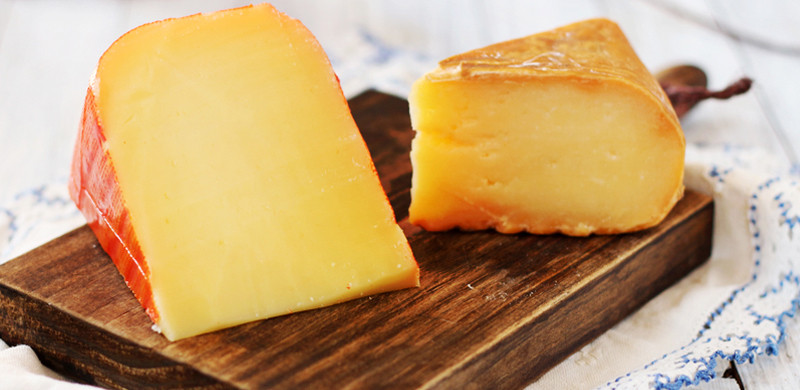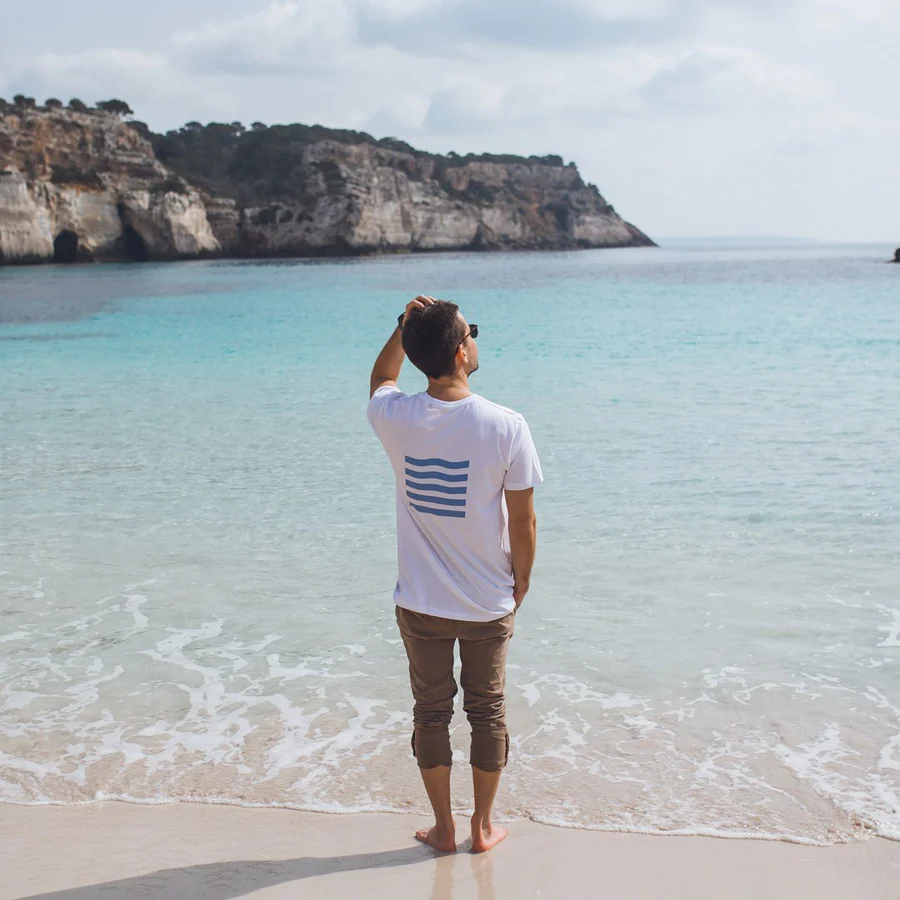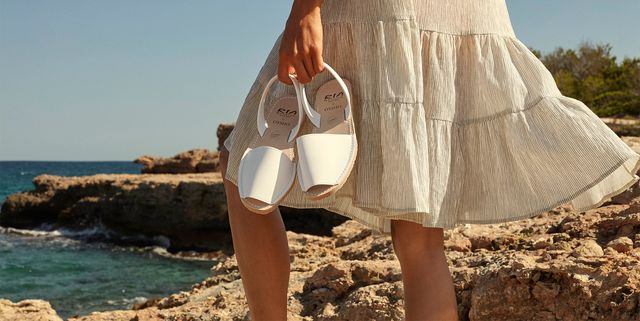
Don’t you know Menorca yet? You are taking too long! Whoever has visited this beautiful corner of the island will know why… And the fact is that, in addition to its unspoiled nature and good weather, Menorca treasures some typical products that will make you love the island.
From its gastronomic products to local handicrafts, in this article we discover the main ones. Read on to find out what souvenirs you should take with you on your next trip!
Indice:
1. Menorca Republic T-shirts and Sweatshirts

“Menorca Republic Brand is a brand of inspiration, design and printing in Menorca.
Brand created in 2021. They work with organic cotton T-shirts and sweatshirts of soft touch and good quality.
They can be found online or in different stores on the island.
They have T-shirts with coordinates of different emblematic sites of Menorca and another line of products with the logo of the brand.
You can visit their website here: www.menorcarepublic.es
2. Mahón cheese and other cured meats
One of the Menorcan products that cannot be missing on the table is Mahón cheese. Among other equally recognized sausages of the island (such as sobrasada), the cheese under Denomination of Origin Mahón Menorca condenses in a rounded and peculiar format the essence of the island. Its flavor comes from the milk of cows raised in Menorca.
Two different types of cheese are marketed under this denomination. The first and most classic is the so-called ‘Artisan’. It follows the millenary recipe that protects the D.O. and is made from raw milk. A cloth called ‘fogasser‘ is used to shape it.
The ‘formatjar ‘ or the way of preparing the second variety is distinguished by the use of pasteurized milk and not raw milk. Do you feel like trying them? No wonder! They have been produced for more than 1,500 years for a reason. The denomination was obtained in 1985, although there is evidence of its elaboration in the Ancient Age.
- Where to buy it: On the Internet at www.quesomahonmenorca.com and on the island you can buy it in any of the companies that produce it (the list is this one).
- Price: depends on the brand, although it can range around 25 € per kilo.
- Other sausages: Sobrasada, Cuixot de Menorca and butifarra sausage.
3. Wine appellation ‘Vi De la Terra Illa de Menorca’.
And, as it could not be otherwise, a good sausage must be accompanied by a concoction to match. One of the typical island beverages is the wine with the Denomination ‘De la Terra Illa de Menorca’. A natural jewel in a liquid version.
This local product is certified by the Island Council of Menorca and has a centuries-old tradition. In Menorca, wine production dates back to the ancient Roman Empire, although from the 18th century onwards it increased with the arrival of the British.
It is a wine that began to be certified in 2002 and up to eleven different grape varieties are distilled. From Cabernet Sauvignon to Merlot, including Chardonnay or Parellada.
- Where to buy it: It can be found in stores all over the island, but the best places to buy it are the wineries that produce it.
- Recognized wineries: Bodega Binitord (Ciutadella), Binifadet (Sant Lluís), Bodegas Menorquinas (Es Mercadal), Sa Forana (Sant Climent) or Hort Sant Patrici (Ferreries).
- More information on the designation can be found in its official bidding documents
4. The abarcas, a traditional peasant footwear

Leaving aside the gastronomy for a moment, if there is a star product in Menorca, it is the leather sandals. This typically Menorcan footwear condenses the lifestyle and vindicates the artisan values of the island.
Also known as menorquinas, the abarcas are sandals traditionally worn by farmers that have become a standard. It is a product promoted by the Island Council since 2010 under the guarantee brand ‘Avarcas de Menorca’.
Handmade sandals manufactured under this seal meet three requirements: they must have a recycled tire sole, follow a leather thickness standard and be locally made.
- Where to buy them: In local stores in Menorca and the online websites of companies associated with the seal. Consult the list here.
- How to identify them: Authentic local abarcas carry the quality seal ‘Avarcas de Menorca’, a label that guarantees their origin and handmade manufacture.
- More information at avarcademenorca.org/en/.
5. Gin Xoriguer and its island cocktail: the ointment.
Although wine is a famous drink, it is not the only one on the island. The ointment is also well known. It is a cocktail based on lemonade and another typical product of Menorca: the local Xoriguer brand gin . Interesting, isn’t it? Two in one!
This traditional and endemic drink of Menorca is essential in any self-respecting night party. Today, the ointment is more than 50 years old since it was invented in 1967 by restaurateur Magí Camps.
Among its peculiarities is the name itself. This comes from the fizz created by the gin and lemonade mixing together. It is a common spirit that can be served neat or with innovative additions such as mint.
On the other hand, the Gin Xoriguer from which it is made has the reputation of being one of the oldest liqueurs in the Mediterranean. Its recipe dates back to the 18th century and its distillate has notes of juniper in the English tradition.
- Where to eat them: In any pub or restaurant in Menorca they will know how to prepare a pomada. A bottle of Xoriguer can be purchased online or at its store in Mahón (Plaza del Carmen, 17).
- Curiosities: Pomada is not known as such in all municipalities; in Ferreries and Ciutadella de Menorca it is ordered as gin with lemonade (‘gin amb llimonada‘).
- More information about the local gin at xoriguer.es
6. Menorcan Ensaimadas
And we close the list with a product designed for those with a sweet tooth. If you visit the island, do not hesitate to sweeten your breakfast with a traditional ensaimada. This lard and egg-based dessert has been homemade in the Balearic Islands since time immemorial.
Nowadays, the variety of flavors and fillings has grown, and even Mahón cheese ensaimadas are consumed. What remains unchanged is its warm welcome and artisanal feel.
The history of the ensaimada has two versions and both refer to cultures with a very particular way of life: Arab and Jewish. According to the first hypothesis, the Arabs cooked during their stay a curled sweet similar to the ensaimada, but without butter.
On the other hand, the Jewish origin theory takes us back to a special bread made for the celebration of the Sabbath that could have evolved to our days after the Reconquest with the addition of lard.
- Where to buy them: In any confectionery shop in Menorca, although always by order for many units.
- Recognized bakery: Can Pons (Es Mercadal), Best Ensaimada of the World Award 2020. Web: can-pons.com/en/ and more information here
